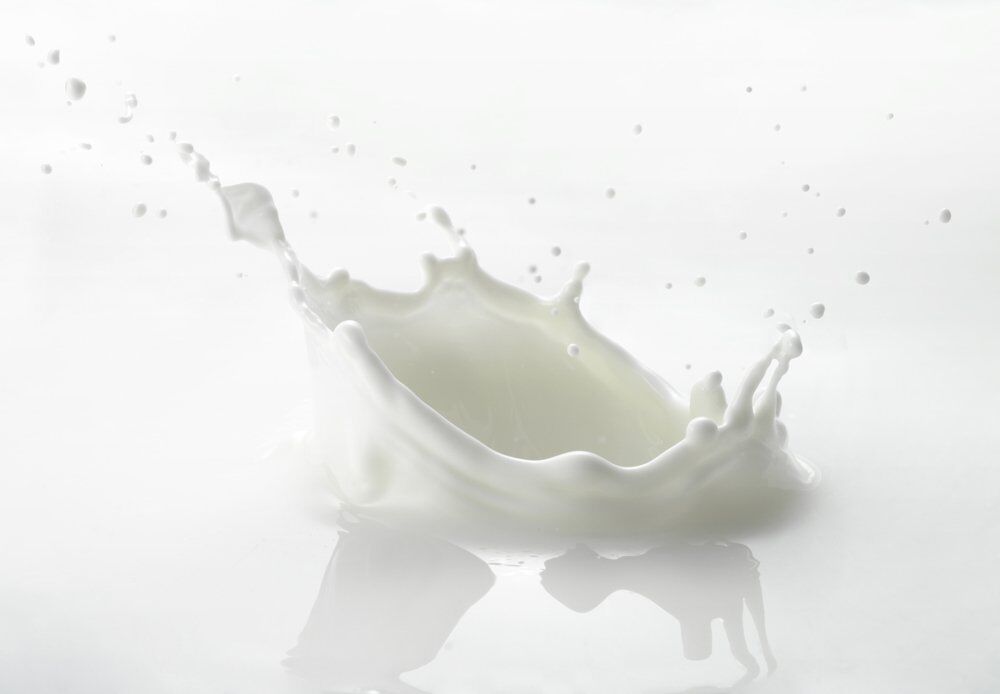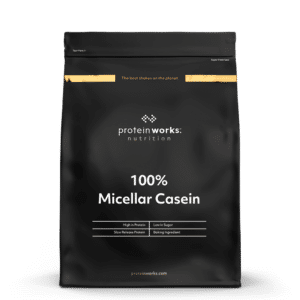Milk Protein is a slow digesting, highly pure protein source. Purified from filtered milk, its unique properties make Milk Protein ideal as an anti-catabolic agent, minimising any muscle protein breakdown. Milk Protein is composed of the same proteins as is found in milk; casein and whey but in far higher concentrations. Casein forms the majority of Milk Protein (typically around 80%) and has been used within sports nutrition and bodybuilding for many years. Tried and tested as one of the earliest supplements and with so many excellent properties, this article will investigate the potential side effects of Milk Protein.
Side Effects of Milk Protein
Many studies have proven the effects of Milk Protein as an anti-catabolic and also its synergistic relationship in improving the effects of Whey Protein (when taken together). Milk Protein is not a new thing. Used as a highly pure form of protein in the early days of supplementation, Milk Protein is still an excellent supplement used by athletes and bodybuilders. Found in most Western diets in foods such as cottage cheese, yogurt and hard cheeses. Despite this there is very little research available on side effects and a lot of research.
Googling side effects of Milk Protein may well lead you to some medical site recommending people to stop taking any casein based peptides before surgery. They argue that not enough is known about them and they COULD interfere with blood pressure control. The evidence they cite for this is based more on dietary casein from dairy products. High levels of these and a poor diet and you would have problems controlling your blood pressure. I would argue that any evidence they base this claim on is due to individuals with high cholesterol and poor lifestyles. Their risk factors are mainly caused from poor lifestyle and diet rather than high levels of Milk Protein or casein.
There is some controversy over the genetic variants of casein. There is some evidence linking these with an increased risk of atherosclerosis and type 1 diabetes, but the evidence was shown to be inconclusive. Further tests have produced no direct evidence of atherosclerosis in humans and the research methods used in the studies have also been criticised. The validity of the results were also questioned by other healthcare professionals due to these methods.
Milk Protein Allergy
Milk Protein is simply a purified form of milk. This makes Milk Protein the most likely protein to cause a reaction to anybody with an allergy to milk. It is worth bearing in mind that most allergies are developed during early childhood – if you are an adult without an allergy, you are highly unlikely to develop one. So if you do not have an allergy to milk, supplementing with Milk Protein should be safe and effective.
Milk Protein & Organ Damage
Although there is no scientific evidence to substantiate the claim, a small group of health experts argue that eating high protein diets combined with protein supplements (such as Milk Protein) may adversely affect kidney function. In theory this could be supported through the kidneys having to work harder on such a diet. That said, the same experts also agree that any such side effects are likely only if it is consumed in very high amounts over a period of many years.
Previously it was thought that high protein diets cause liver damage but this has not been proven scientifically. Some experts argue that eating large quantities of protein for prolonged periods (i.e. years) will have an adverse effect on the liver. This is based on more pressure being put on the liver to assimilate the high quantities of protein present in supplements such as Milk Protein. If this is, as argued, a cumulative effect then it would be most likely to apply to Milk Protein, as it has been used for a lot longer than its whey based alternatives. As such, there is still no definitive proof other than theories. These theories are still not substantiated by examples of people actually suffering from the potential problems. It is therefore to be completely safe and effective to supplement with Milk Protein.
These theories may be logical, but evidence is yet to be presented as to how much ‘very high’ or how long ‘many years’ actually is. To re-iterate, these are also not scientifically backed and the evidence does not exist.





No Comments yet!